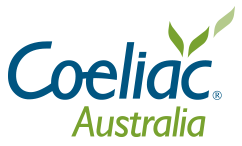Coeliac disease is a condition where the body’s immune system reacts to gluten. Gluten is a protein found in foods made with:
- Wheat (spelt, durum, atta)
- Rye
- Triticale
- Barley
And in small amounts in:
- Oats
- Ingredients made from the above grains e.g. malted barley, wheat starch, maltodextrin
How is it managed?
The only treatment is a strict life-long gluten free diet. Eating any gluten causes the small, finger-like projections (villi) in the bowel to become inflamed and flattened. Eating a gluten free diet allows the bowel wall to heal and digestion to return to normal.
What are the risks of not following a strict gluten free (GF) diet?
Consequences of small bowel damage and poor absorption of nutrients include:
- Iron deficiency anaemia and/or other vitamin and mineral deficiencies
- Osteoporosis
- Weight loss
- Gastrointestinal symptoms e.g. diarrhoea, nausea, bloating
Other complications which can relate to untreated coeliac disease include:
- Infertility
- Gastrointestinal cancer
- Altered mental state
- Increased risk of other autoimmune conditions
Choosing the right foods and making sure that your diet is well-balanced can be difficult without professional help. An Accredited Practising Dietitian (APD) can help you to identify the different types of foods to include and avoid whilst still allowing you to enjoy a varied and nutritious diet.
Key resources:
- Coeliac Australia – https://www.coeliac.org.au/
